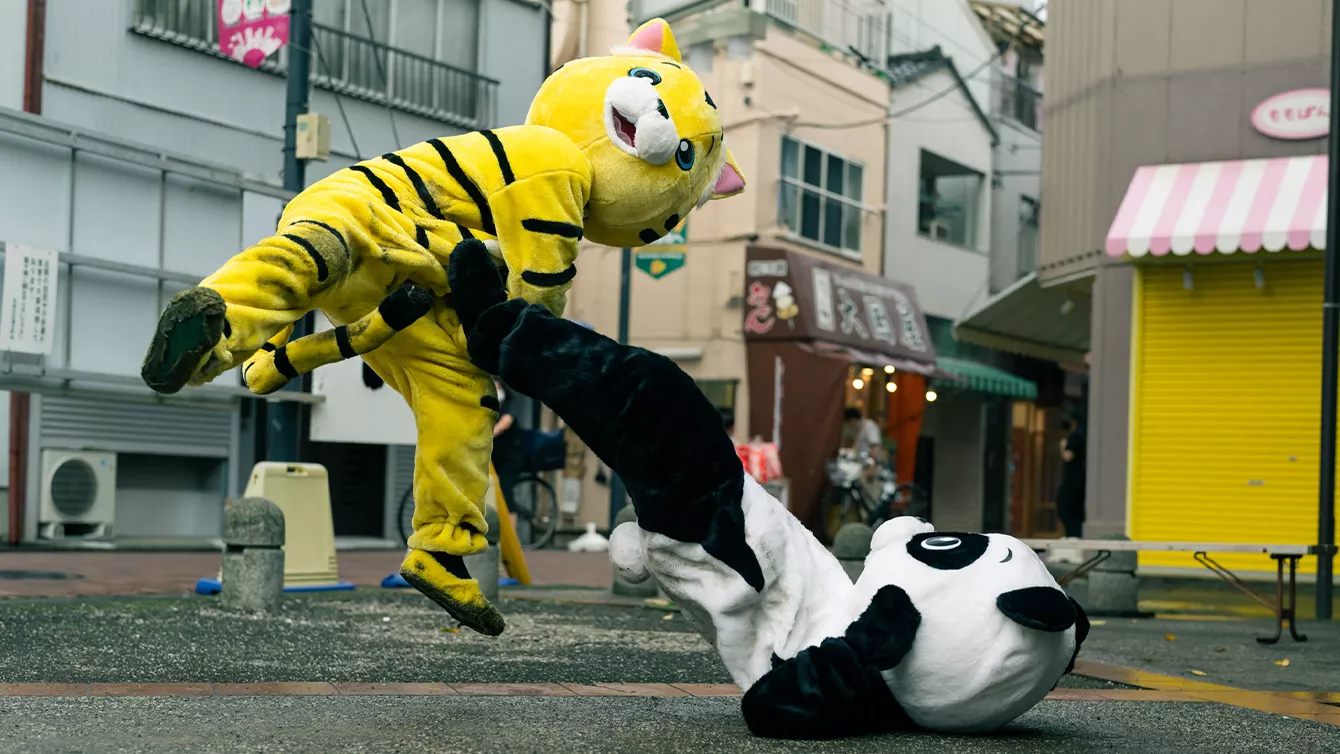Action cinema is never far from questions of the psychotic, be it content, form, or both. Be it questions of production (why would these humans risk their lives for this image?) or events within the image itself (what is the moral nature of what is seen?), the reality of the unhinged is never far from thought. A cursory survey of the genre may very well land on the premise that what is best in this facet of the cinema is the capacity to keep each strand of this question present within the film and, as a result, detect where the general extent of the difference in reception of a John Wick 4 in contrast to a Mission: Impossible – Dead Reckoning: Part One is found. In a certain sense, the action genre is presently thriving at a time when it has become best able to express that the viewer — whether the one who sees Universal Soldier: Day of Reckoning or The Night Comes for Us — is seeing something wrong because, more deeply, something is wrong in life itself. Which brings us to Baby Assassins 2 (ever so slightly retitled for its U.S. release from the original Baby Assassins 2 Babies).
Sakamoto’s Baby Assassins (2021) and Baby Assassins 2 (2023) — centered around two graduating high schoolers, Chisato (Akari Takaishi) and Mahiro (Saori Izawa), who chase work as assassins for the purposes of getting rich quick in order to avoid the gig economy and feed the impulses of their id (i.e. lazing around, gaming, eating cake), only to find that not all is well in paradise — hew closely to the unhinged in a deep sense, expressing a cultural ennui founded in social disenfranchisement and economic distress. In addition to this, Sakamoto appears to be building a shared universe of thought (through another of the director’s three murder-in-mind 2021 films, Legendary Hit-man, Kunioka) and character (the “Baby Assassins” themselves cameo in the outstanding work of that year, A Janitor). As a result, what appears implied in the director’s view is a Japan and a subset of its population in profound disarray and angst, both volatile and under threat, ready to eat and be eaten.
This brings us to the film itself. Baby Assassins 2 leaves off the first entry’s comedic tropes of strained, bickering sisterhood to present a pair now working in tandem and as a fully functioning, licensed killing team. Yet, owing to their irresponsible and exorbitant desires, they soon lose that license and the privileges of insurance and clean-up that come with it, and find their place in danger by a team of affable male upstarts who have their eyes on claiming the vacancy with Chisato and Mahiro’s agency. The characterization here is all roundly adorable, buffoonish, and — as many note — identifiable in its slacker ethos. The challenge of the film is precisely here: no character is beyond some level of identification, whether it be any one character who expresses an unrequited crush, hatred of underpaid work, or deep enjoyment of whatever dessert is being eaten; and yet, we find all this perpetually challenged by a palpable, low-grade sense of villainy that suffuses everyone to varying degrees but which is, ultimately, most meaningful in our protagonists themselves.
Chris Mello last year covered the successes of the action photography and choreography during the site’s Fantasia coverage and this reviewer has little to add in this regard. It’s also clear that Sakamoto and his team understand the possibilities of action as a vehicle for storytelling, and Saori Izawa continues to declare herself as one of the great new talents of the genre. While not operating on the same level of action consistency as a John Wick, the sequel here will satisfy the mild critiques of the initial entry that took issue with the lack of kineticism beyond that film’s opening and close. Here the spread is more consistent, if bolstered by mildly trite melodramatics instead of, perhaps at times, strained comedy. Yet nevertheless, the true success of the work is the problematizing that takes place: unlike other works that make an unambiguous hero of our killer(s) or moderate the violence by displacing it into a parallel world, here Sakamoto’s digital aesthetic and storytelling locates both character and event firmly within a world that is uncanny in its resemblance of our own, and, as a result, implicating the viewer in a question of psychopathy for themselves and of the film itself.
DIRECTOR: Yugo Sakamoto; CAST: Akari Takaishi, Saori Izawa, Atomu Mizuishi, Tomo Nakai; DISTRIBUTOR: Well Go USA; STREAMING: April 2; RUNTIME: 1 hr. 41 min.







